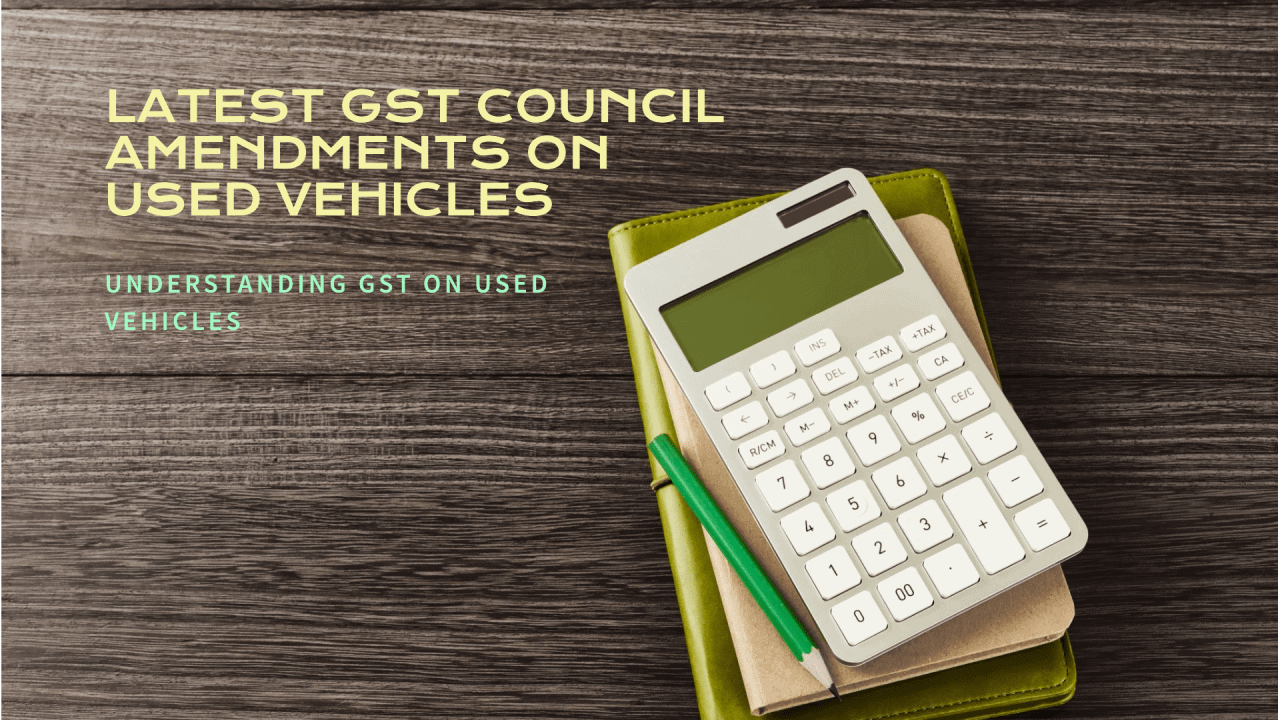Latest GST Council Recommendations
The Goods and Services Tax (GST) Council has recently made changes regarding the application of GST on used vehicles in its latest GST Council meeting. The council recommended 18 per cent GST on the margin of the sale of all old and used vehicles, including electric vehicles (EVs). Earlier, different GST rates were applicable to the sale of old vehicles and old EVs.
Detailed overview of the current regulations and key takeaways for businesses and consumers.
GST on Used Vehicles
Who Pays GST?
Only registered businesses involved in buying and selling vehicles are required to pay GST on used vehicle sales. Private transactions between individuals are exempt from GST.
Uniform GST Rate
The GST Council has recommended a flat 18% GST rate on the sale of all old and used vehicles, including electric vehicles (EVs). Previously, this rate applied only to specific vehicles, such as large petrol and diesel vehicles and SUVs.
No New Tax
Contrary to rumors, the government has not introduced a new tax.
Rule 32(5) of the CGST Rules, 2017 states that for taxable supplies by second-hand goods dealers who have not availed input tax credit, the supply value is the difference between the selling price and the purchase price. If this value is negative, it is ignored.
GST Adjustments with Depreciation If the seller has claimed depreciation under the Income Tax Act, 1961, the GST will be calculated based on the difference between the sale price and the depreciated value of the vehicle. If this difference is negative, no GST will be levied.
The increase from 12% to 18% for certain vehicles is a rate adjustment, not the introduction of an entirely new tax.
Key Takeaways
- GST on Used Vehicles:
- Only applies to businesses and registered sellers.
- Private Sales: Transactions between individuals are entirely exempt from GST.
- Calculated on the positive margin (selling price minus purchase price or depreciated value).
- Private vehicle sales and transactions at a loss are exempt.
These updates aim to bring consistency and transparency to GST rules, ensuring fairness for both businesses and consumers. By understanding these clarifications, sellers and buyers can better navigate the tax system.
For any Further queries or advisory in this matter, please reach out to our Kar Nipuna GST professional team.
Also Read: How to Setup a Company in India: A Complete Guide


